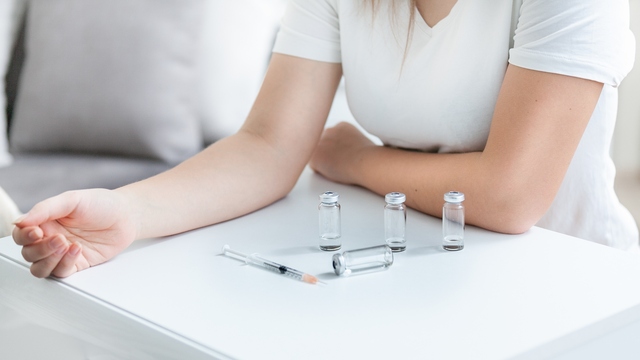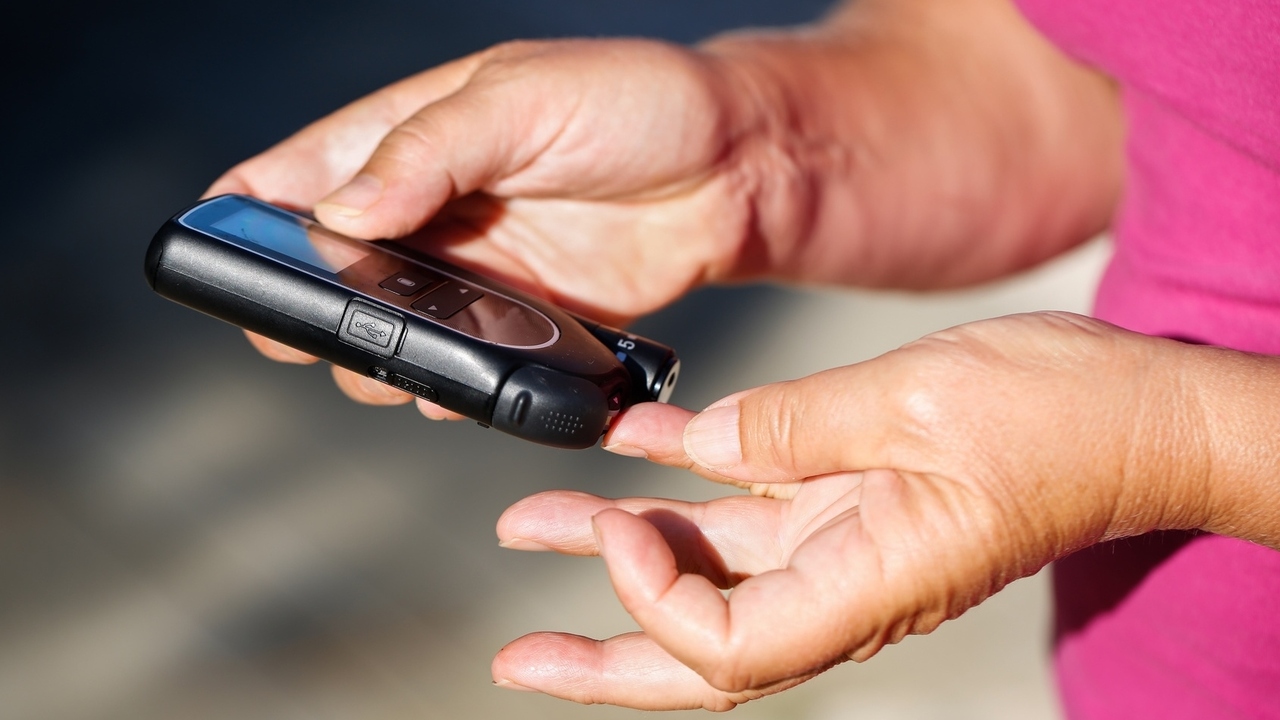 Kyrylo Ryzhov/PhotoSpin
Kyrylo Ryzhov/PhotoSpin
Many women with type 1 diabetes are able to manage their condition thanks to insulin injections, but weight gain is an all too common side effect that may be considered taboo to talk about.
The disordered eating that sometimes follows this weight gain is also rarely discussed.
This dual diagnosis is casually referred to as “diabulimia.”
“Diabulimia is a method used by [individuals] with diabetes to lose weight by under-dosing or failure to take insulin,” said Amy Klimek, an eating disorder program coordinator at Timberline Knolls Residential Treatment Center.
“In the context of an eating disorder, the misuse of insulin can be grouped as a form of purging.”
Two women share their stories of recovery from the eating disorder bulimia while also living with diabetes.
Stacy Russell, 27, is in recovery from diabulimia thanks to the professional help she received at Eating Recovery Center in Denver, Colorado.
She was 14 when she was first diagnosed with type 1 diabetes, but only began struggling with disordered eating during her first year of college.
After eight years of suffering, she was able to get the help she needed at 26 years old. And although she considers herself to be in recovery, day-to-day life is not easy yet.
Russell said in an email that she first stumbled upon the world of diabulimia after having the flu during winter break in college.
She restricted insulin during that time due to her illness, but then noticed how reducing insulin intake and increasing blood sugar levels helped her lose weight fast.
“As I became familiar with the easy access of dropping pounds, it became something I began to do quite frequently,” she said. “I began to notice that it was something I turned to for upcoming ‘big’ events.”
She started researching to see if she was the only one who discovered this weight loss trick, and realized that this was a harmful and potentially deadly trend. However, she couldn’t stop.
“There would be stints of time I would be seemingly better and my insulin use would normalize and my sugars stabilized,” Russell said.
“But it seemed that in stressful situations, or the knowledge that there was something big upcoming, I would revert back to the restriction of insulin to satisfy the need of dropping ‘just a few pounds.’”
Her breaking point was in the summer of 2014, after losing 30 pounds in one month. The secrets, deceptive behavior and lies that became part of the diabulimia were starting to harm her relationships with both friends and family.
She also struggled with obsessive thinking and repetitive, obsessive-compulsive behaviors as part of her eating disorder.
“[Eating Recovery Center] helped me to begin to realize that being skinny is really nothing compared to living, and I don’t mean just waking up every day and functioning,” Russell said.
“Living is being able to enjoy the time with your friends and family, being able to laugh, joke, cry tears of sadness and joy.”
Although she felt at first like she was losing her best friend when she let her eating disorder go in recovery, she now realizes she is really experiencing life once more.
“There is a sense of accomplishment with a side of hilarity when you can finally look at ED and say, ‘I kicked your butt. And I love to dance,’" Russell said.
Quinn Nystrom, 28, was diagnosed with anorexia when she was only 12 years old. However, her type 1 diabetes wasn’t diagnosed until a year later.
“What had begun as anorexia quickly turned into what some people have come to know as ‘diabulimia,’” Nystrom said via email. “For me though, I flew under the radar for a lot of the years with doctors because the typical symptoms they looked for was a high A1C.”
She became a national youth advocate for the American Diabetes Association at age 16, but her battle with disordered eating continued.
“The thing I feared most was being seen as an incompetent diabetic,” Nystrom said. “So instead, my eating disorder was about control and seeing how little of insulin I could give myself.”
She restricted her food intake for as long as possible, and after eating she would either vomit or exercise to the point of bringing her blood sugar level back down.
“I looked at giving myself an insulin injection as making myself fatter,” Nystrom said. “The saddest part was for years I continued this behavior and justified it in my mind, not thinking of it as an ‘eating disorder’ but instead me just dealing with the cards I had been dealt.”
She wasn’t diagnosed with bulimia until she was 24, and was asked by her doctor to check in to an inpatient treatment facility. For the last five years, she has tried multiple facilities, but finally received the help she needed at Timberline Knolls in 2012.
Although she had to give up a profitable job and her previous standard of living, Nystrom is now able to have a much better life with friends who have stuck by her side through the journey to recovery.
“I had to realize life simply couldn’t be done on your own,” she said. “Humans need other humans to live. And boy did I.”
Sources:
Nystrom, Quinn. Email interview. January 7, 2015.
http://www.quinnnystrom.com
Klimek, Amy. Email interview. December 23, 2014.
http://www.timberlineknolls.com/information/about/staff/eating-disorder-coordinator-amy-klimek
Russell, Stacy. Email interview. January 6, 2014.
http://www.eatingrecoverycenter.com
Reviewed January 9, 2014
by Michele Blacksberg RN
Edited by Jody Smith





Add a CommentComments
There are no comments yet. Be the first one and get the conversation started!